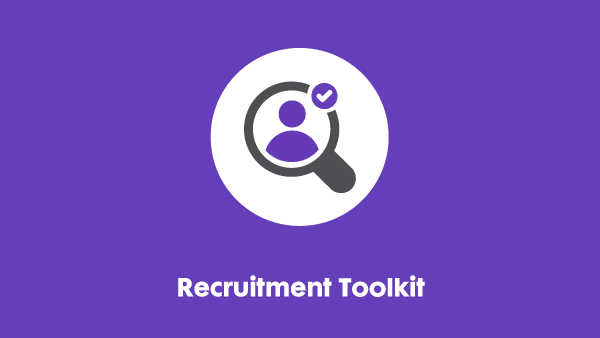Last updated: 12 February 2025
Blog – Why disabled people don’t apply
This is external content provided by Evenbreak, a job board for disabled candidates. Members of Business Disability Forum can receive a 10% discount on Evenbreak’s services – the award-winning job board for disabled people.
Introduction
Evenbreak is the only global disability job board run by and for disabled people, and our candidates are very open about the barriers they face when looking for work. They also tell us how those barriers can be removed. Here is what we have learned from them about what employers can do to be attractive to disabled candidates.
When we talk to companies about employing disabled people, sometimes – too often – the response is, ‘we don’t discriminate; they just don’t apply.’ The assumption is, that if disabled people wanted the job, they would simply apply. Evenbreak’s candidates tell us the experience of repeated, apparently unjustified, rejections and discrimination can sometimes put them off applying for jobs altogether.
A survey conducted by the Enactus team at UCL for Evenbreak asked disabled candidates to identify the biggest barriers they face when looking for work. Over 700 people responded, and overwhelmingly (more than 80 per cent) said that the biggest barrier they faced was simply not knowing which employers were disability-friendly and would take their applications seriously. Many stated that they would not apply for a job unless they were convinced the employer was inclusive and accessible.
Therefore, employers need to work a bit harder to attract disabled candidates. You could be the most inclusive employer on Earth, but if disabled candidates don’t know that, the chances are they won’t apply for your roles. So, what can you do to ensure disabled candidates know that you are open to their talent?
Targeted advertising
Many employers now describe themselves as ‘inclusive’ or ‘equal opportunity’ employers. Our candidates tell us that even these employers often omit disability from their definition of inclusion. They are fairly meaningless phrases, and require no specific action, resource or accountability. However, if an employer chooses to advertise in, say, disability journals, or on a specialist job board, that targeted spend demonstrates a genuine commitment to disability inclusion. Our candidates say they have confidence to apply to an organisation who pays to advertise their vacancies on a job board just for disabled people, like Evenbreak, as their talent is clearly welcomed. They are much more likely to apply, and also likely to be more open about any access needs they may have.
Peer testimonials
Word-of-mouth recommendations from existing disabled employees are very powerful, but can have limited reach. Capturing those stories on text or short video clips will reach a wider audience and can be shared on social media, your careers or diversity page, profiles on job boards and direct targeting. A disabled employee saying that they are thriving, feel valued and supported, and have all their access needs met, powerfully suggests that the organisation is somewhere that disabled people can flourish. Not everyone wants to share their story, of course, but the more that do, the more attractive you are as an employer. Candidates say that if they can see someone like them thriving within an organisation, it’s a good indication that they will, too.
Accreditations
In the UK, there are a number of accreditations you can achieve. These include the government’s Disability Confident Scheme, BDF’s Disability Smart Standard and RNIB’s Visibly Better Employer standard. You can also sign up for Mindful Employer, which demonstrates your commitment to good mental health in the workplace.
Awards
Like accreditations, awards can demonstrate third party endorsement of your practice around disability inclusion. Consider BDF’s Disability Smart awards, the RIDI (Recruitment Industry Disability Initiative) Awards, the Make a Difference Awards, as well as more general diversity awards.
Wording in adverts
The standard “we welcome applicants from all backgrounds …” statement, commonly found at the very bottom of a job advert, does little to convince diverse candidates about your sincerity. Putting a positive statement much higher up, such as why you want to attract disabled talent, how you will benefit and how you will support candidates, is much more powerful.
Offering adjustments
Making it clear that you offer adjustments in the recruitment process, and how to request them, is something disabled candidates look for. Consider including a welcoming statement in your advert, and at every touchpoint in the process, along the lines of, “We want all of our candidates to shine in the recruitment process. Please tell us what we can do to make sure you can perform at your very best”, and provide a named person’s contact details.
Further information
- Contact our Advice Service for guidance on specific questions.
- Evenbreak’s website has a job board where employers can share details of positions they want to advertise to disabled applicants.
- Refer to the other resources in our Recruitment Toolkit for more information on attracting and hiring disabled candidates.
If you require this content in a different format, contact enquiries@businessdisabilityforum.org.uk.
© This resource and the information contained therein are subject to copyright and remain the property of the Business Disability Forum. They are for reference only and must not be copied or distributed without prior permission.
